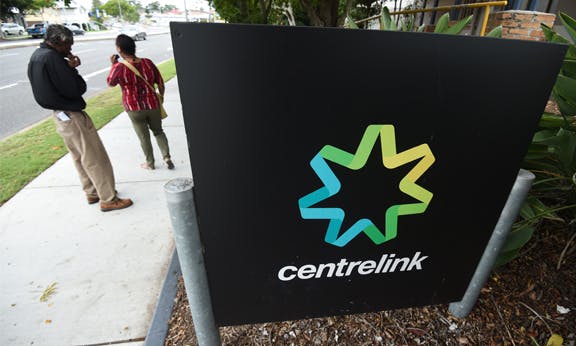Constructing the ‘undeserving poor’

This year’s federal budget trotted out a new round of attacks on the unemployed, most notably the trialling of drug-testing for people on the dole.
Emphasising the moral inadequacy of the unemployed, Social Services minister Christian Porter said the trial would “ensure taxpayers’ money is not being used to fund drug addictions for dangerous substances such as ice and that people in these situations are given every assistance to improve their lives”.
Failure to meet a new list of “mutual obligations” would also mean repeat offenders having their welfare payments cancelled. Again, the moral culpability of the unemployed was trotted out to justify this. Scott Morrison proclaimed, “We will no longer accept as an excuse from repeat offenders that the reason they could not meet their mutual obligation requirements was because they were drunk or drug-affected”.
Variants of such attacks have characterised all the Liberal budgets since 2014. As Catherine Yeomans of Mission Australia then summed it up, this is “demonising vulnerable people in order to make a case for reducing the welfare budget. Jobless youth are painted as lazy and unmotivated and … the ‘solution’ provided is a crackdown that denies basic financial support while requiring them to apply for jobs that don’t exist”.
Despite the cynicism of pretending that urine tests can overcome the current reality of 17 unemployed people for each available job, bashing the unemployed is one of the few winners for the government.
A 16 May Essential poll gauging responses to the budget found 69 percent support for drug-testing the unemployed. This was not an outlier. A 2015 study by Timothy Schofield and Peter Butterworth found that, although there was broad support for the social welfare system, negative attitudes are held toward those who receive welfare benefits, summarised as “the welfare system is good but the people on it are lazy and dependent”.
To understand how it has come to this, we need to recognise how long governments have been demonising the unemployed as “dole bludgers” and similar. It is not something that started with the Abbott budget in 2014.
As the world economy entered its first economic crisis since the Great Depression in the early 1970s, the Whitlam Labor government bowed to the bosses’ wishes that workers pay for the crisis. Industrial relations minister Clyde Cameron denounced militant trade unions and accused them of “pricing workers out of jobs”. Government ministers began to pepper their speeches with references to “dole bludgers”, an odious label that has been with us ever since.
Subsequent governments increasingly required more and more hoops to be jumped through to receive unemployment entitlements. The punishment programs were turned into a source of private profit, as the Commonwealth Employment Service was replaced by the privatised Job Network in the late 1990s.
“Welfare to Work” under the Howard government was extended under the ALP. More controls and cuts were imposed, along with increasingly compulsory participation in work for the dole schemes.
Such attacks could not be (and were not meant to be) confined to the unemployed. Anyone dependent on government support was bound to have the stigma of shiftlessness rub off on them. So the Gillard government used the pretext of single mothers’ potential laziness to remove many of them from the single parenting payment, and to cut the payment by up to $100 for others.
John Falzon, the CEO of St Vincent De Paul, spoke the truth about what’s happened when he said earlier this year: “Living in poverty is not a sickness. Nor is it a crime. Yet we continue to fall into the ideological trap of either pathologising or criminalising people who sin against the dominant moral code by not being ‘self-reliant’ in the marketplace. This is not new”.
As the record of every government since 1975 indicates, Falzon is right. But capitalism’s need to blame its victims when it throws them on the scrapheap has an even longer history.
Samuel Smiles, a Victorian era moralist, claimed that the English Poor Law Amendment Act of 1834, which punished the poor in order to cure them of their poverty habits, was “one of the most valuable that has been placed on the statute-book in modern times”.
His book Self-Help declared, “No laws, however stringent, can make the idle industrious, the thriftless provident, or the drunken sober”. Nonetheless, the distinction between the “deserving” and “undeserving” poor became a legal one.
Bashing the “undeserving poor” today is acceptable not only because it has such a long history, or that governments and the media have put such a lot of time and effort into promoting it as a realistic picture of the world we live in.
It also fits with the general ideology of late capitalism, more and more crudely expressed: what is unmarketable is worthless.
This deep-seated idea justifies attacks not just on the unemployed but on those in work. This ideology is accepted very much to the degree that working class people today are less unionised and, even more importantly, that there hasn’t been any great struggle that has fostered a sense of collective solidarity against the prevailing conditions. If we change that, we can start to undermine the dehumanising of the unemployed.